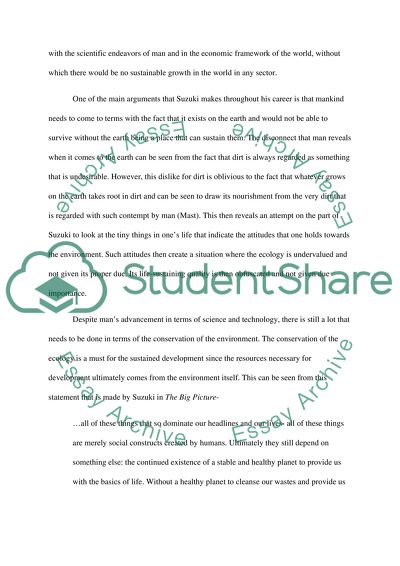Cite this document
(“David Suzuki, The Big Picture- the enviormentalist dilemma Essay”, n.d.)
David Suzuki, The Big Picture- the enviormentalist dilemma Essay. Retrieved from https://studentshare.org/philosophy/1469106-david-suzuki-the-big-picture-the-enviormentalist
David Suzuki, The Big Picture- the enviormentalist dilemma Essay. Retrieved from https://studentshare.org/philosophy/1469106-david-suzuki-the-big-picture-the-enviormentalist
(David Suzuki, The Big Picture- the Enviormentalist Dilemma Essay)
David Suzuki, The Big Picture- the Enviormentalist Dilemma Essay. https://studentshare.org/philosophy/1469106-david-suzuki-the-big-picture-the-enviormentalist.
David Suzuki, The Big Picture- the Enviormentalist Dilemma Essay. https://studentshare.org/philosophy/1469106-david-suzuki-the-big-picture-the-enviormentalist.
“David Suzuki, The Big Picture- the Enviormentalist Dilemma Essay”, n.d. https://studentshare.org/philosophy/1469106-david-suzuki-the-big-picture-the-enviormentalist.


